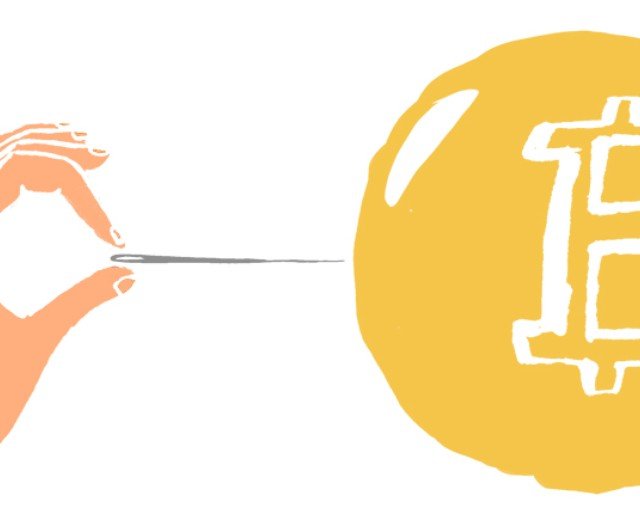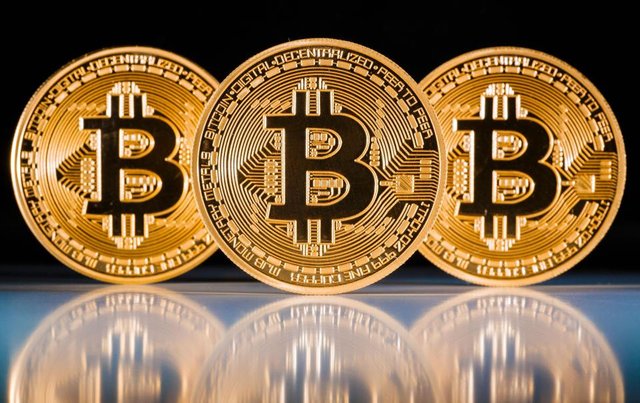For the last nine months, the Bitcoin rally that took the digital currency from a few hundred dollars to close to $3000 had all the elements of a bubble that has yet to turn into a mania before it bursts. Every asset bubble is different, and can be easily confused with healthy bull markets. But they all follow a certain pattern. They begin with ‘investor hype’ over a popular theme – an emerging industry or an exotic product that promises to change the world and make many people rich in the process. Somewhere down the road Wall Street develops the vehicles that make broad investor participation in this theme easier, like a mutual fund or an ETF—turning investor hype into market contagion, and pushing the price of the underlying assets ever higher.

Then comes easy money by accommodative central banks to provide ‘the air’ -- financing for the bubble to grow bigger and bigger. Bold predictions by market gurus and talk in the mass and social media create buzz that help prices double or even quadruple in a matter of days, even hours—turning market contagion into mania. Investing in this theme reaches a cascade, as no investor wants to be left behind.
Finally, the bubble bursts, as early investors have already cashed out, and there are no more investors to join the party. Apparently, the ongoing run up in Bitcoin and other digital currencies has most of the elements of a bubble. It’s an exotic asset that comes with big advantages—a better hedge against global uncertainties than conventional hedges like gold; a convenient medium of payment around the globe; and a limited supply--21 million. Meanwhile, there’s investor hype. More and more investors are becoming familiar with the digital currency, and can use investment trusts like GBTC to conveniently participate in the market. Adding to the hype is an ultra-low interest rate environment (which has lowered the cost of holding all these four-digit trading Bitcoins). But there’s one thing still missing to turn the bubble into mania: a broad participation beyond the “pioneers” and the “early adopters,” to “early majority--” along the Rogers curve. That’s when the demand for Bitcoin reaches a cascade and turns into mania, as a critical mass of investors rush to buy “hot” Bitcoins for the promise they hold -- rather than for the fundamentals they display. Investors who have been around Wall Street long enough know all too well that when money becomes tight and investment promises aren’t fulfilled, bubbles and manias end; and millions made are lost much faster than they were made.

If you liked reading :) Resteem and Follow me please!
Hi! I am a robot. I just upvoted you! I found similar content that readers might be interested in:
https://bitcointalk.org/index.php?topic=1980892.msg19726712
Downvoting a post can decrease pending rewards and make it less visible. Common reasons:
Submit
Bitcoin will be moon high to $50K , i remember when it was $0.001
Downvoting a post can decrease pending rewards and make it less visible. Common reasons:
Submit
Too much trust and support. Bitcoin will never die.
Downvoting a post can decrease pending rewards and make it less visible. Common reasons:
Submit
Cool article!
Downvoting a post can decrease pending rewards and make it less visible. Common reasons:
Submit
Interesting, what do you think of Steem in relation to this?
Downvoting a post can decrease pending rewards and make it less visible. Common reasons:
Submit
Waves yes, but a "BTC bubble", no, if it is a bubble it could have bursted a long time ago. It just recovers again and again from a dip because the trust on it is so high I think it will just continue it's trend.
But there is a longing from me for BTC price to crash, a perfect moment for a buy opportunity.
Downvoting a post can decrease pending rewards and make it less visible. Common reasons:
Submit